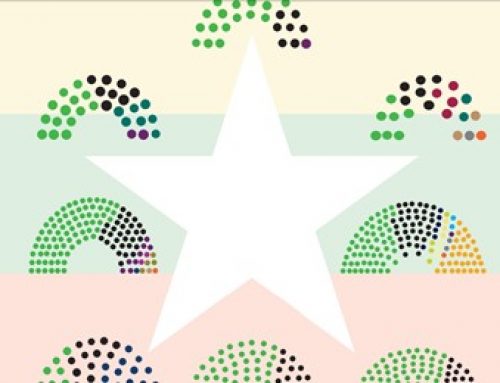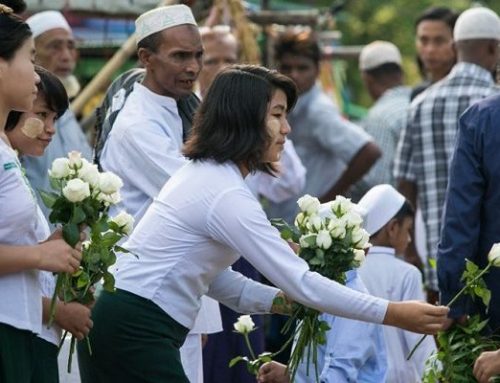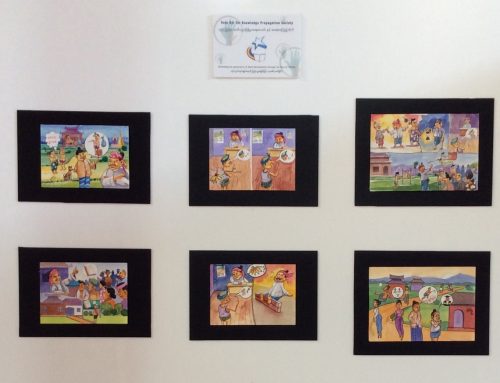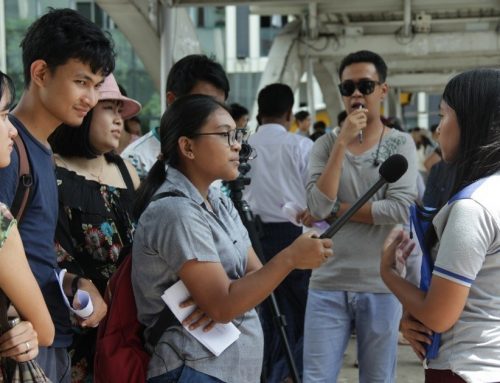Dr Ma Thida Sanchaung
PEN analysed ethnic representation in Myanmar literature, via a survey of more than 3,000 short stories published in leading magazines with prominent readerships, between 2008 and 2018. Some of the questions the team sought to answer included: How are people of various ethnicities presented in the media, and to the public via their consumption of magazine stories? What impact did the easing of censorship laws in 2012 have on levels of ethnic representation in literature, and on how ethnic people were represented? Seeking to work against the tide of ethnic exclusion that they expected to find, lead investigator Dr Ma Thida put together a research team comprised of writers and artists like herself who represented a range of Myanmar’s ethnic groups – including Mawkin, Christian and Buddhist Bamar, Pao, Karen, Shan, and Mon. ‘From the very beginning’, said Dr Ma Thida, ‘we felt it was important that this team should be inclusive.’
The magazines selected for analysis were Shwe Amuytay, Mahaythi, and Yanantthit@Khit Yanant. The researchers set about reading every story published in each of these three magazines over the course of a decade, and set up a coding system to record where each of the stories were set and in what historical period, what themes and topics they covered, the ethnicity and gender of the authors and of the key characters, and where the author came from. The team came together every fortnight to discuss common threads and differences in their research findings, as well as to smooth out coding difficulties. At around the same time, recognising a lack of research on the issue of literary representations and exclusions of ethnic people, and without any clear guidance on how to conduct such a study, Dr Ma Thida organised three training workshops to help develop capacity in this area. These focused on research methods, research ethics, literature analysis, and their intersection with human rights.
The research team concluded that the number of stories being published almost doubled in 2011 with the shift from military rule to civilian-led government and the concomitant relaxation of censorship laws. Publication figures remained at this level over the coming years, with another peak in 2016 following the general election and continuation of civilian-led government. Male authors dominated the literary scene, with both men and women preferring to create characters of the same gender as themselves though this was more marked amongst male authors, and there was not much variation in their coverage of LGTB characters and of objects and animals. With regards to ethnic characters, the project findings showed that in most cases authors from any given state or region created characters belonging to that area.
Although reference to characters’ ethnicity and religion was sparse, the researchers found that Bamar Buddhists accounted for the majority of literary characters. Hence, there is a clear indication that literature in Myanmar has historically excluded both ethnic writers and ethnic characters. The next step, and part of an ongoing programme of efforts by PEN Myanmar, is to establish dialogue in eight of the major ethnic languages about the steps that writers and publishers can take to be more inclusive and representative of Myanmar’s rich diversity.
About PEN Myanmar
PEN Myanmar is an association of 365 distinguished writers, poets, artists, editors, and journalists, and hundreds of supporters who are representing all seven ethnic states. PEN Myanmar was established in 2013 with the vision to protect and promote freedom of expression and to nurture a living literature in Myanmar. Its constitution was drafted and received unanimous approval from all PEN centres worldwide at the 79th Pen International Congress on 12 October 2013. The objectives set out by PEN Myanmar are to first, protecting and promoting freedom of expression, second, helping to establish a vital literary culture, and third, building a bridge between school education and creative literature in Myanmar. PEN Myanmar activities include panel discussions on literature and free expression; raising awareness on federalism for Bama majority area, promoting freedom of expression to members of both regional and national parliaments, writing and translation workshops; literary evenings focused on ethnic writing; peace writing contests; the conflict-sensitive media monitoring project that led to the publication of a report on hate speech; and the November 8 Diary – a collection of non-fiction writings about the 2015 elections.
A short film about the work of PEN Myanmar




